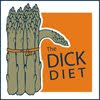We will begin our discussion of the macronutrients
with protein.
What
do proteins do in the body? Why are they so important?
Protein provides the structural basis for our body:
building and repairing our muscles, ligaments, tendons, organs, glands, nails,
hair, blood, hormones, neurotransmitters, cell receptor sites, antibodies, and
enzymes.
As
you read and learn about what protein does in your body, please consider this
question – are you eating enough protein?
Let’s take a closer look at the functions of
protein:
Building and repairing muscles, ligaments, and
tendons – this is obviously an extremely important function. Building and repairing is a continuous
process. One example is exercise. Exercise breaks down muscle and then the body
builds newer, bigger, and stronger muscle in its place via the repair
process. Protein is essential for a
strong body. If you have had a recent
injury or are recovering from an injury protein is even more important.
Organs and glands – these are at the basic operating
systems of your body. The heart and
lungs for breathing and circulation; the stomach, small intestines, large
intestines, and pancreas for digestion; the liver for hundreds of functions
including keeping the blood clean; the endocrine glands for producing the
hormones that regulate and monitor how your body functions. Protein keeps these systems up and running!
Nails and hair – for beautiful glowing hair and
robust nails protein is an important ingredient.
Hormones – regulating and controlling all the key
processes of your body. This includes
blood sugar control, stress response, metabolism, and the menstrual cycle to
name a few. Along with neurotransmitters
the hormones determine how you feel physically, mentally, and emotionally at
any given moment.
Neurotransmitters – neurotransmitters are very
important as they keep us mentally sharp and decisive. Quite simply – neurotransmitters give us the
ability to be happy, alert, remember, and focus. There are two types of neurotransmitters. Excitatory neurotransmitters energize,
excite, stimulate, focus, learn, and remember.
Inhibitory neurotransmitters keep us happy, relaxed, and peaceful. As with most areas of life, it is all about
balance.
Antibodies – a critical part of our immune system to
keep us healthy.
Enzymes – the catalyst to all the chemical reactions
in our bodies.
Where
does protein come from?
Proteins come from both animal (meat, fish, poultry,
milk, cheese, eggs) and plant sources (whole grains, legumes, nuts, and
seeds). When we eat protein we are
actually consuming amino acids.
Different proteins have different amino acid compositions.
Among the amino acids there are nine that are
considered “essential.” Anytime you hear
the word “essential” in nutrition it means we need to eat that specific
nutrient because our body does not manufacture it. Other “essentials” are some fatty acids,
Vitamin C, and minerals.
Since our body is constantly building and repairing
itself, it requires a constant supply of protein. Therefore I recommend protein be consumed
with each meal.
What
proteins should I eat?
- MEATS: Beef, bison, lamb, veal, lean pork
- POULTRY: Chicken, turkey, duck
- SEAFOOD: Any fish or shellfish, fresh or frozen
- OTHER PROTEINS: Legumes (beans and peas)
- NUTS & SEEDS: Nuts and seeds such as: almonds, Brazil nuts, cashews, walnuts, pecans, pumpkin seeds, sunflower seeds, raw or dehydrated. Natural nut butters where oil rises to the top - avoid commercial brands (containing hydrogenated oils and sugar).
- DAIRY: Eggs, Butter, Cheese, Cottage cheese, Yogurt without added sugar
- GRAINS:
·
Sprouted
grain bread
·
Whole
grain breads/crackers
·
Whole
grains - brown rice, quinoa, bulgur, millet, wild rice
·
Whole
grain cereals, pastas - i.e. oatmeal, health store cereals
Bernard
Rosen, PhD is a Nutrition Consultant and Educator. He works with individuals,
groups, and at corporations to create individualized nutrition and wellness
programs. His office is in Mequon, WI. To learn more or to schedule an
appointment, e-mail at bernie@brwellness.com, call (262)
389-9907 or go to www.brwellness.com.
.jpg)


